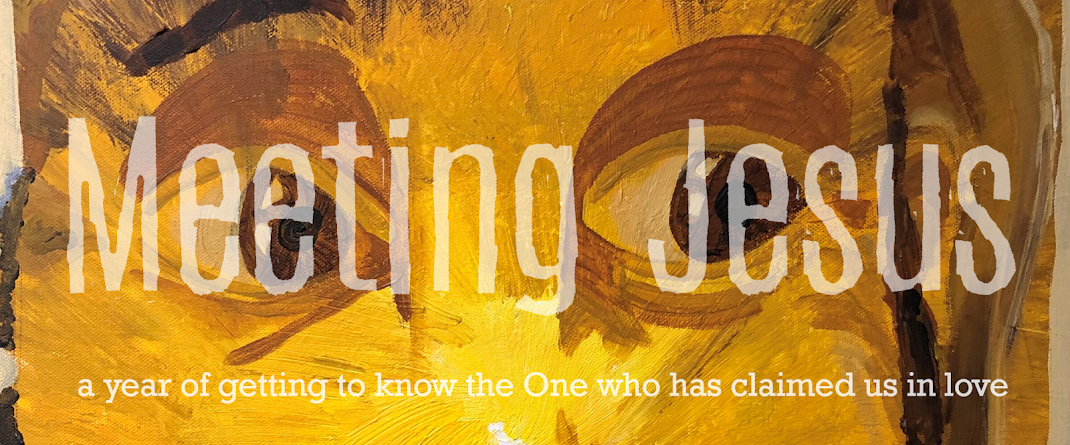A Necessary Lament--February 25, 2022
"Cleanse your hands, you sinners, and purify your hearts, you double-minded. Lament and mourn and weep. Let your laughter be turned into mourning and your joy into dejection. Humble yourselves before the Lord, and he will exalt you." [James 4:8b-10]
On most days, we'd probably want to skip over verses like these and find something happier and peppier to talk about. On most days, we'd look for a way to sweep this passage under the rug or fold them into whatever comes next in this book so we don't have to spend any time living with these words.
Today, somehow, it feels right--or at least necessary--to hear these words... and to make ourselves sit with them for a while, without moving on to something we would frame in a plaque and mount on the living room wall. Today, as the news announces the unprovoked invasion of Ukraine by Russia, an event we have been watching build and brew like a storm on the horizon or a car accident in slow-motion, it feels like sorrow is the right place to be. As we shudder to recall how similar these headlines feel to the history we learned once upon a time of conflicts that built and became "world wars," it feels like mourning is the only honest place to be. And as we dare to put ourselves in the shoes of those whose homes are now unsafe, whose streets are being overrun with tanks, and whose families are now fleeing for danger, it feels like lament is exactly what we need to do. Perhaps there is an unexpected--and also uncomfortable--grace in the timing for us that we have to deal with these words of woe from James on a morning like this.
Grace may seem too strong a word, or out of place, for talk of lament--but I believe lament is ultimately about telling the truth. And truth is always good, even when it makes us squirm or sorrowful at the same time. The truth will set us free, but to loosely paraphrase the line from Ted Lasso, it will upset you first. Maybe both are two sides of the same coin. And when terrible things are happening, whether under your own roof, in our community, across our country, or around the world, we need to be able to say so. We need to be able to name terrible things as terrible things, to grieve what is awful about them, to own whatever roles we have in contributing to them, to turn from them and set things right where it is ours to do so, and to lament them. We need to be able to be sorrowful for the things in life that warrant sorrow, rather than thinking being people of faith means faking a smile everywhere we go. We need, as the old line goes, to have our hearts broken over the things that break the heart of God. And it is grace then, to have someone shake us and stop us from fiddling while cities burn.
James doesn't specifically have a foreign war between Russia and Ukraine in mind when he calls on his readers to lament and weep, of course. But he has been calling on us to wake up to the ways we--particularly we who claim to follow Jesus--so easily slide into the thinking the world calls "conventional wisdom" where might makes right, greed is celebrated as the means to success, and bullies can be praised as "geniuses" for preying on anyone they can find to pick on. And while one hopes we can recognize those things when they are playing out in front of us in real time on the news with cruise missiles and tanks, James also calls us to take a look within ourselves at where the same impulses can get a foothold in us. The "logic" that leads an autocrat to invade a neighboring country in the name of his own national interest is the same mindset we can so easily baptize for ourselves in slogans like "MY group/interests/country first!" or "It's a dog-eat-dog world out there, so we've got to get all we can for ourselves!" And James sees all of it as lamentable, so he speaks the truth we need to hear to allow us to lament. We may not be invading another country at the moment, but the logic of empire and conquest is always tempting right here for us as well. And naming it as something to weep over hopefully means we will not fall for that temptation the next time it presents itself to us.
Today, my prayers are for the people of Ukraine displaced and threatened by foreign invaders who have invented a pretext for why their actions should be permissible. My prayers are for those who are victims of others' greed, ambition, and the insecurity that drives people to think they need to look "tough." And at the same time, James pushes me to lament all the ways I have fallen for the same logic before--thinking that might makes right, that my interests (or my group's interests) are superior to someone else's, or that it is permissible to take what I want because I can, regardless of who it steps on in the process. Those things in me are lamentable, as well as the tragedy of a world on the brink of war. James would also be the first to remind us that prayer is never the end of our calling--only the beginning. To pray our laments over war, greed, and bloodshed also wakes us up to be ready to act--to welcome those who will be displaced as refugees, to call on aggressors who also name the name of Jesus to repent of their actions, and to repent ourselves of the ways we have fallen for "Me-and-My-Group-First" thinking, too.
So let us pray--honestly, sorrowfully, and reflectively--and then let us be ready for how God moves us in to act in light of our prayers.
Lord, have mercy. On those who are in harm's way this day. On us where we need the grace of truth-telling about ourselves. On this whole world you love, despite our violence.













